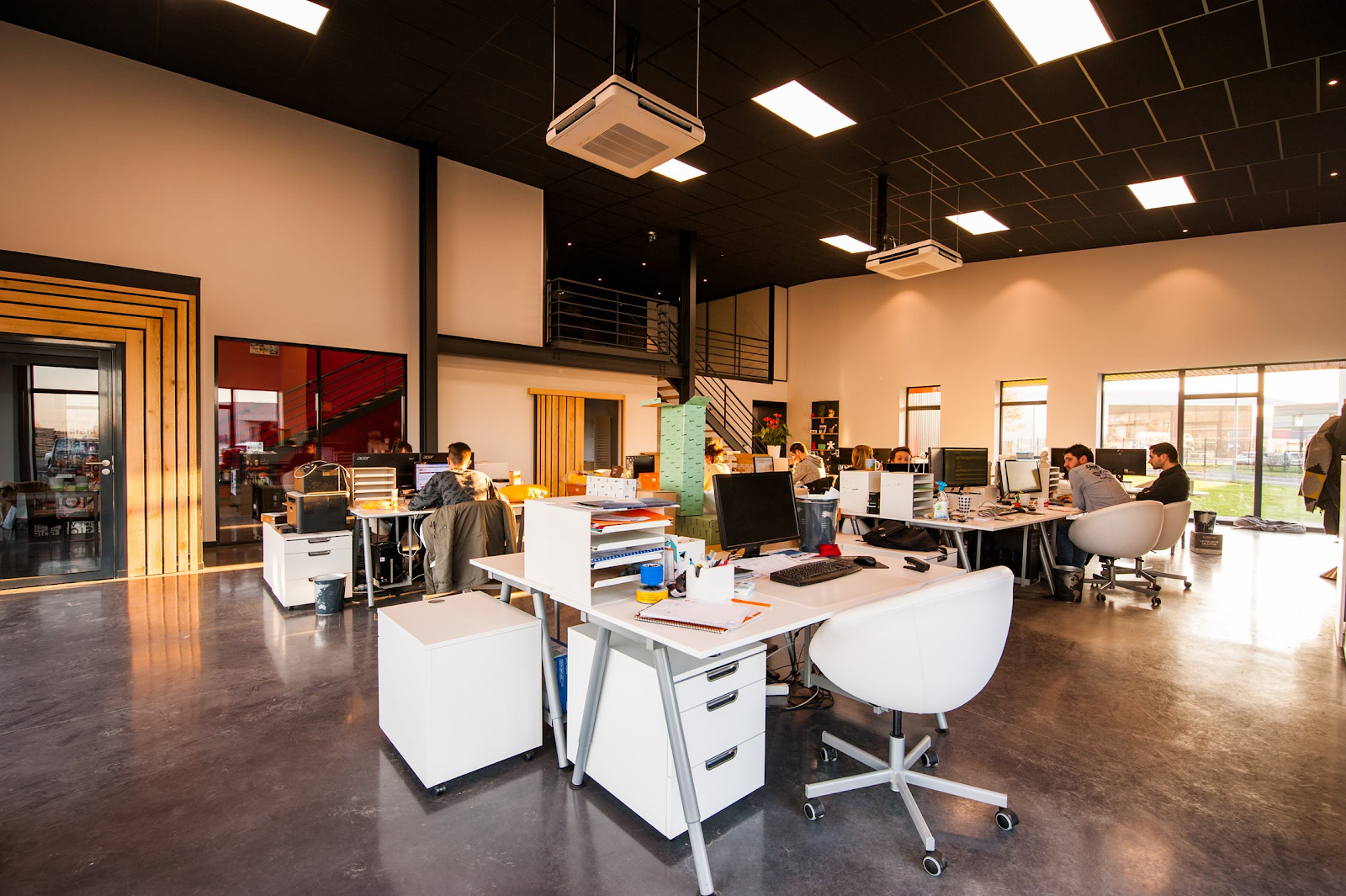In recent years, the traditional office has had an overhaul. The advice is unanimous: if you need a physical office and don’t wish to work remotely, open offices are by far the best option. Popular opinion suggests that open-plan workplaces promote inclusivity, facilitate communication, and ensure everyone can be supervised simultaneously- what’s not to like?
Think again. According to The State Of The Workplace 2019 by Diskette Behavioural Research, less than a quarter of participants favour work from an open plan office in reality. The 2500 professionals surveyed cited noise, distractions and an increased sense of surveillance as reasons for preferring closed offices or remote working.
Given that over three quarters of respondents stated a preference for privacy, why do we continue to rip out walls and doors to make work communal? According to Diskette, respondents propounded that in an open plan office environment they became easily distracted from their daily tasks due to noise. In order to combat this, many individuals opted to use headphones, but ended up feeling more isolated from their team as a result. This highlights a number of causes for concern: that people aren’t able to focus on their tasks, that the team aren’t gelling as a result, and that the individual’s mental wellbeing is suffering due to their working environment.
The study reveals that both employees and executives alike still favour the traditional closed office setup. Even so, the demand for increased flexibility in location and working hours was evident in these same groups. Whilst open plan offices often offer the opportunity for shared working as well as allowing for better facilities, the reality is that true collaboration rarely happens spontaneously, and employees don’t rate communal spaces as important when choosing a role or company. After all, after a week of bean bag chairs and table tennis, the novelty tends to wear off and the reality of Simon the tax guy moaning loudly all day long, with nowhere to take phone calls in private proves to be a struggle.
Functionality is key in any workplace, whether that’s in your office or when you’re trying to choose a remote working spot. Without a functioning space, productivity and wellbeing both take a hit. So, if open plan offices aren’t working, what do employees actually want? Well, the Diskette Behavioural Research study showed that the majority of people value having a quiet space to focus, easy access to their team members and flexibility about where and when they work. These are simple, reasonable principles that transcend industry, age range or seniority. So why are we trying to reinvent the wheel in regards to the workplace? All the free coffee in the world won’t help if you can’t get in touch with your team or work in a windowless room or can’t get the peace and quiet necessary to churn out that report.
This lack of functionality offers a valid explanation as to why open offices have well and truly had their moment. People are returning to the closed office, or moving forward with remote working to secure a more flexible, satisfying way of life. Microsoft founder and billionaire, Bill Gates, alluded to the fact that “the competition to hire the best will increase in the years ahead. Companies that give extra flexibility to their employees will have the edge in this area.” Here at Wundamail, we believe this guy knows what he’s talking about in terms of predicting business trends and people’s behaviours. Those within the study who currently work remotely reported an uptick in productivity, a renewed enthusiasm for their job and an increased satisfaction in their work/life balance since they made the change.
With the team management technology available, you no longer have to be in the same open plan office as your team to get your job done. Nor do you need to be able to physically see your employees in order to monitor their workload. Less than a quarter of people actually like open plan offices, so why are we still insisting that they’re the way forward? Be truly open within your workplace and allow your employees the flexibility to work in the surroundings that make them the most productive, and they’ll be much more satisfied in their working situation than those who have to block out Simon’s moaning.



